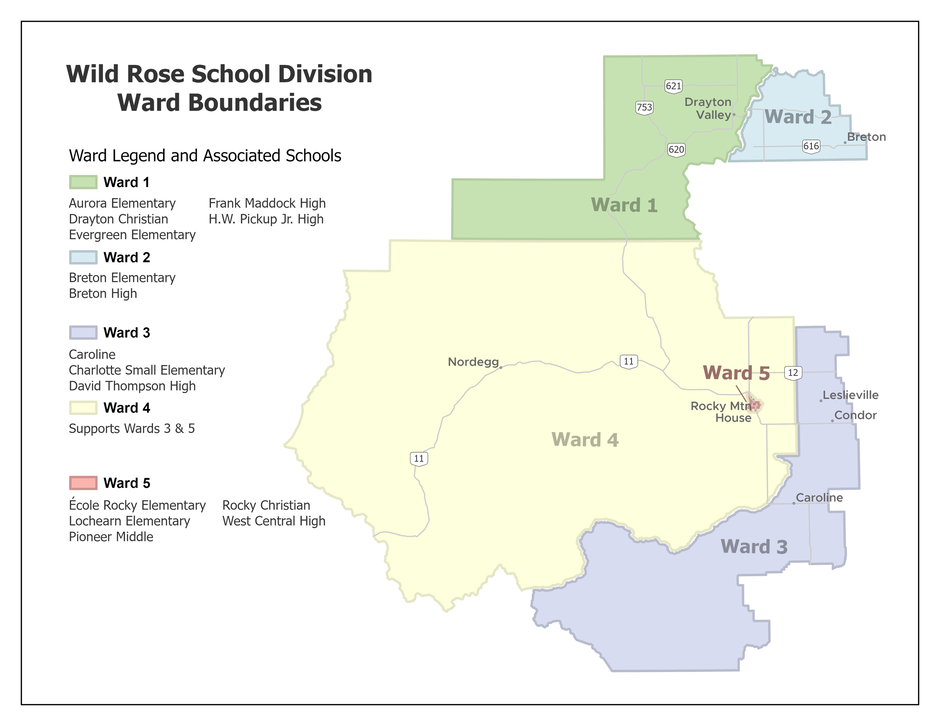What School Boards Do & Don’t Do
As your Board of Trustees, our primary focus in our governance role is to establish the overarching vision and strategic direction for our school division, ensuring our policies align with community values and provide high-quality education for all students. We are responsible for setting the annual budget, advocating for our students with the provincial government, and hiring and evaluating the Superintendent of Schools.
What we do not do, however, are administrative tasks such as hiring individual school staff, managing daily school and division operations or dealing with individual student discipline issues. These crucial administrative responsibilities are delegated to our Superintendent and their administrative team, who are experts in the day-to-day running of our schools, ensuring that the Board's strategic vision is effectively implemented.
The summary below provides an overview of the essential roles and responsibilities of trustees in Alberta's public education system, highlighting their governance, accountability, and community engagement duties.
- Overview:
- Trustees are elected and/or acclaimed representatives responsible for governing public, separate, or francophone school boards in Alberta.
- They ensure that educational services meet community needs and comply with provincial legislation.
- Key Responsibilities:
- Governance: Trustees do not have individual authority; they make decisions collectively as a board. They are accountable to the public for the board’s decisions and the quality of educational services.
- Education Plan: Developing and monitoring the jurisdiction’s education plan, ensuring it aligns with provincial goals and community needs.
- Superintendent Oversight: Hiring, evaluating, and holding the superintendent accountable for implementing board policies and priorities.
- Student Achievement: Focusing on student achievement and well-being, promoting a safe, inclusive, and respectful learning environment.
- Engagement: Providing opportunities for parents, students, staff, and community stakeholders to engage in educational planning and goal setting.
- Policy Development: Creating and implementing policies that guide the operational aspects of the school division.
- Resource Stewardship: Managing the board’s resources effectively, including developing, approving, and monitoring the annual budget.
- Advocacy: Representing the board’s interests to municipal, provincial, and federal governments, and advocating for educational priorities.
- Effective Board Characteristics:
- Teamwork: Effective boards work collaboratively, leveraging the strengths and experiences of individual members.
- Decision-Making: They make informed decisions based on comprehensive data and community input.
- Accountability: Boards are accountable for their performance and transparent in their operations.
- Role Clarity: Clear distinction between the governance role of the board and the operational role of senior management.
- Legal and Ethical Compliance:
- Trustees must comply with all relevant provincial legislation, including the Education Act and associated regulations.
- They are required to adhere to the board’s code of conduct and ensure ethical leadership within the board.
- Accountability Framework:
- The Assurance Framework in Alberta mandates boards to assess progress and demonstrate success through planning and reporting documents such as Education Plans and Annual Education Results Reports (AERRs).
- Performance measures include student growth, teaching quality, learning supports, governance, and local context.
- Additional Duties:
- Electing Leadership: Trustees elect a board chair and vice-chair to lead the board.
- Strategic Planning: Establishing the board’s mission, vision, and values, and setting long-term strategic priorities.
- Policy Adherence: Ensuring policies support staff health, safety, well-being, and human resource matters.
- Facility Management: Overseeing the management and maintenance of school facilities.
- Recognition: Implementing mechanisms to recognize students, staff, and community contributions.
- Local Advocacy: Communicating and advocating for the needs and priorities of their communities.
- Relationship with the Minister of Education:
- Boards must provide information requested by the Minister and implement a reporting and accountability system as prescribed.
- The Minister has the authority to investigate and intervene in board operations if responsibilities are not met, including appointing an official trustee if necessary.
- Role of the Board Chair:
- The board chair presides over meetings, ensures adherence to procedures, and acts as the spokesperson for the board.
- The chair is responsible for maintaining the board’s focus on strategic goals and ensuring informed discussions during meetings.
- Role of Individual Trustees:
- Trustees represent their communities, bringing local concerns to the board and ensuring decisions reflect community values.
- They must uphold and support board decisions, even if they initially disagreed with them, and work towards effective implementation and monitoring of these decisions.
- Resources and Training:
- Trustees are encouraged to utilize various resources for effective governance, including the Alberta Good Governance Handbook and other educational materials.
- Continuous learning and professional development are essential for trustees to perform their roles effectively.
For further details see:
POLICY 02 - Role of the Board
POLICY 03 - Role of the Trustee
For a listing of all WRSD Board Policies see: Board Policies























